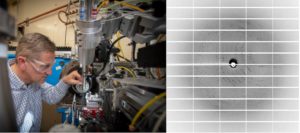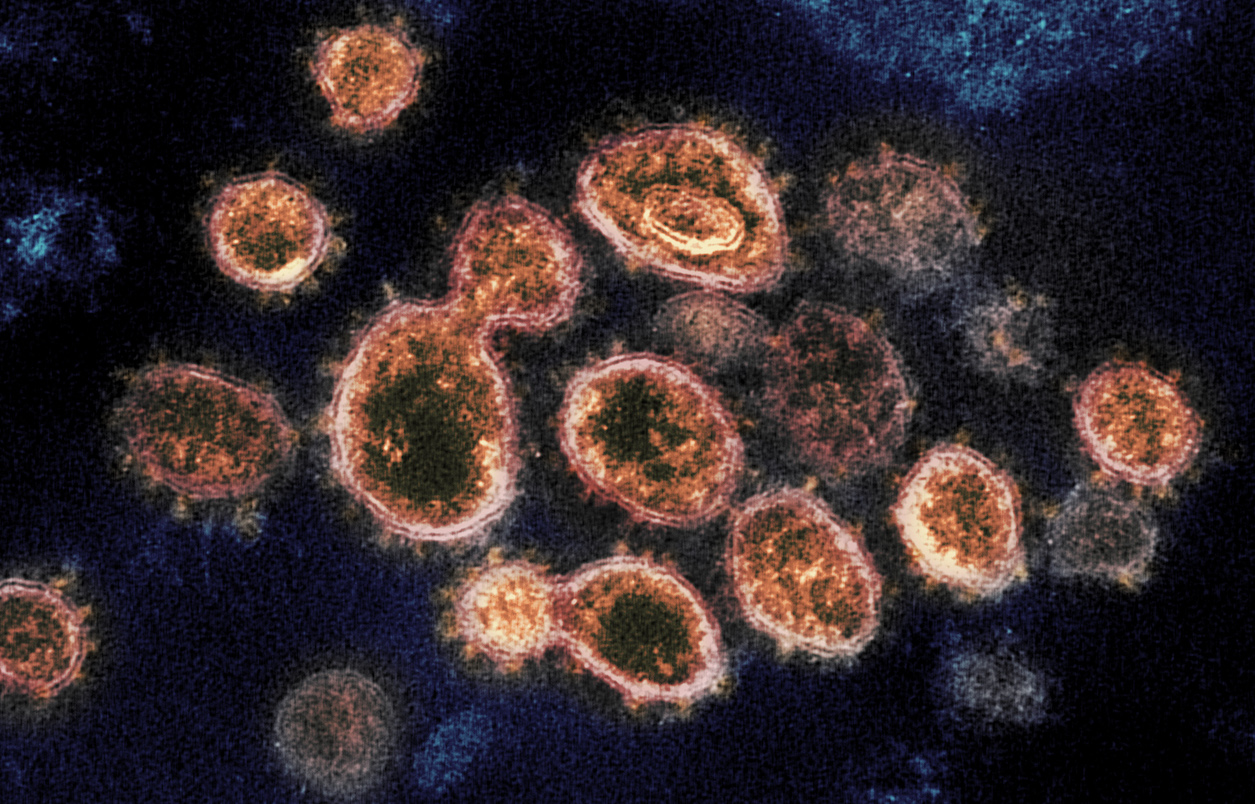An international team led by Davide Corti at Vir Biotechnology and David Veesler at the University of Washington is working to identify neutralizing antibodies to SARS-CoV-2, the coronavirus that causes COVID-19. The team’s latest findings, which include data gathered at Berkeley Lab’s Advanced Light Source (ALS), indicate that antibodies derived from SARS survivors could potently block entry of SARS-CoV-2 and other closely related coronaviruses into host cells. Such antibodies could be used as a preventive treatment or as a post-exposure therapy. In a study published in Nature, the scientists note that the most promising candidate antibody is already on an accelerated development path toward clinical trials.

Left: Marc Allaire loading an alignment tool at the beamline. Right: A crystallography diffraction pattern obtained from a crystal of S309.(Credit: Marilyn Sargent & Marc Allaire/Berkeley Lab)
To understand how this antibody, called S309, hinders the spike protein on the surface of the virus that facilitates entry into host cells, the team used cryo-electron microscopy (cryo-EM) at the University of Washington Arnold and Mabel Beckman cryoEM center and X-ray crystallography performed at ALS beamline 5.0.2. Marc Allaire, a biophysicist in the Biosciences Area’s Molecular Biophysics and Integrated Bioimaging (MBIB) Division, is head of the Berkeley Center for Structural Biology (BCSB), which manages that beamline.
Read more in the Berkeley Lab News Center.



